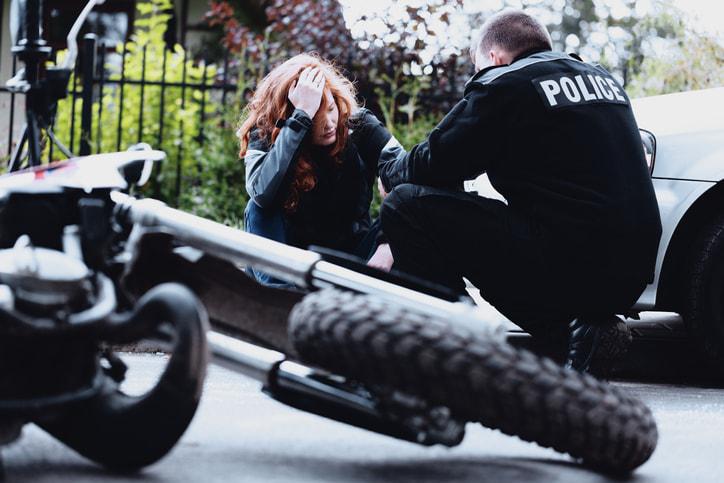Riding a motorcycle is both fun and dangerous. The two-wheeler could bring you phenomenal power and freedom on the road with the added risk of injury when compared to an enclosed vehicle. Motorcycle riders are five times more likely than enclosed vehicle drivers to suffer an injury when involved in a road accident. These injuries can have serious consequences and should be addressed immediately after an incident.
In 2019, 84000 minor motorcycle accidents were recorded in the USA alone. If you are involved in a moto accident it is imperative that you stay calm, remain level headed, assess your situation and ensure the safety of those around you. Below are six actions you should take if you are ever involved in a minor moto accident.
1. Check Yourself & Others Involved
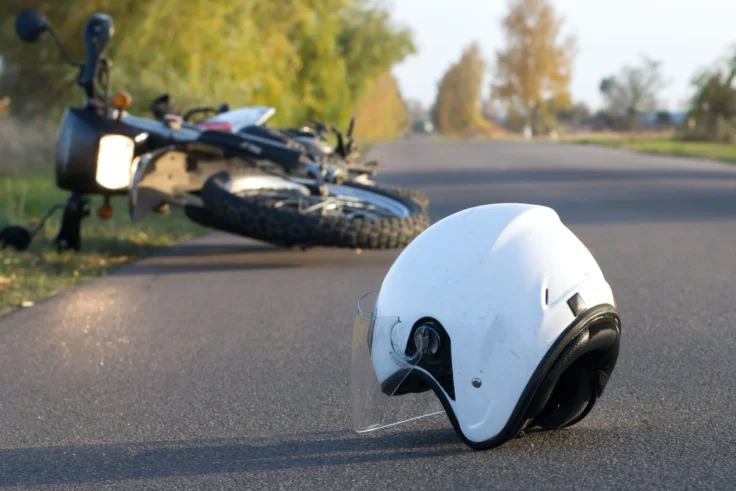
Accidents can cause a rise in adrenaline, which might lead to disorientation and confusion. For that reason, the first thing to do upon meeting a minor motorcycle accident is to take a deep breath and compose yourself.
Once you’re able to make sense of what happened and your breathing is steadier, get up and check yourself. Assess the exposed parts of your skin for any rashes. If you feel a stabbing or numbing pain, immediately rush to the hospital. Stabbing pain indicates internal bleeding, while numbing pain could be due to nerve damage.
Do the same for any other person who’s involved, whether a rider or a passerby. Ensuring the safety of everyone involved should be your first and top priority in any similar situation.
2. Document the Accident
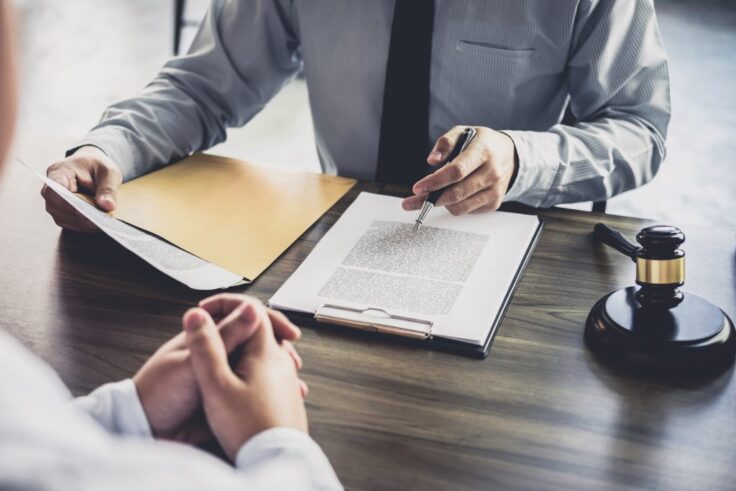
If everything’s good and you don’t notice any physical harm to yourself or others, it’s time to secure yourself legally and financially. Gather evidence about your minor motor accident to ensure that you’ve got the necessary information to support yourself in case any future complications arise.
If you’re wondering what these complications could be, here are a few possibilities:
- You may get legally accused of property damage that you cannot currently see.
- You might need insurance for damages caused later on.
- You might need this data if another motorcycle accident follows.
- It may come in handy if another unfortunate incident follows immediately after the accident.
The best way to document a minor moto accident is to take pictures. Leave your bike in the position it landed if it doesn’t affect the traffic or jeopardize anyone’s safety. Record a video and take some pictures of the scene before authorities or cleanup crews arrive.
Make sure the footage includes the road hazards that led to the accident or any thing that could have been a catalyst for your involvement. Take pictures of any injuries you may have sustained as well, irrespective of how small they seem. When saving this media on your phone, ensure that your device records the correct date and time.
3. Ask People to Witness
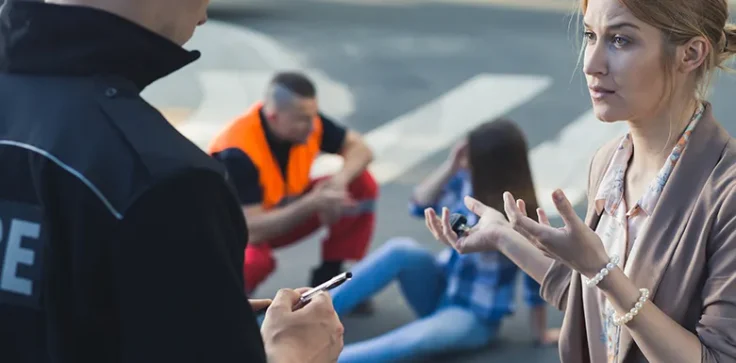
If you were involved in an accident with many bystanders, it’s a good idea to ask them to be an eyewitness in case there are complications with your insurance or authorities in the future. You ask as for their details, including:
- Name
- Address
- Contact Number
Alternatively, you can use your phone’s voice recorder to record their statement. This statement should comprise a brief introduction of the eyewitness, including the details mentioned above and a narration of what they saw. If you can, try and get a copy of eyewitness’s license, a simple picture on your mobile phone will do.
4. Report the Damage
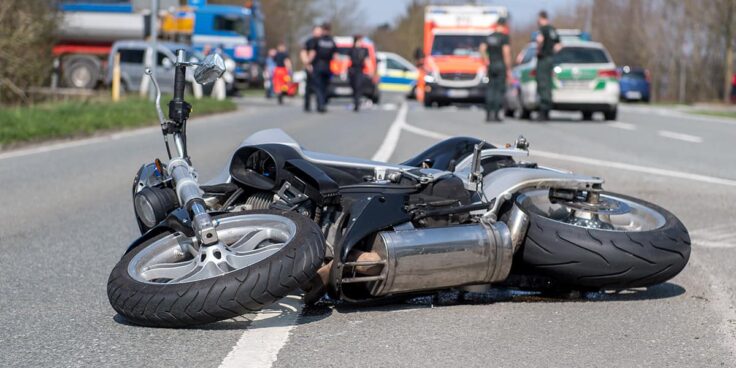
For any visible damages to someone else’s property, call 911. Even if your minor motor accident has crushed a bush in someone’s garden or wrecked street decor, make sure you inform the authorities about what happened and have them witness the situation.
When calling the police to the site of the accident, do not remove your protective gear or move away from the site of the accident. Instead, you should try to stay in your accident-stricken position. Why? Well, the police will most likely interrogate you about the situation. And the best way to answer all questions is to provide evidence for it.
You will most likely be asked about the cause of your motorcycle accident. We advise you to be honest. Whether you were speeding, had blurred vision, or there was some external reason behind the accident, let the police know. Reporting timely and honestly could save you big on fines, time and any offenses you may have committed.
5. Assess Your Bike
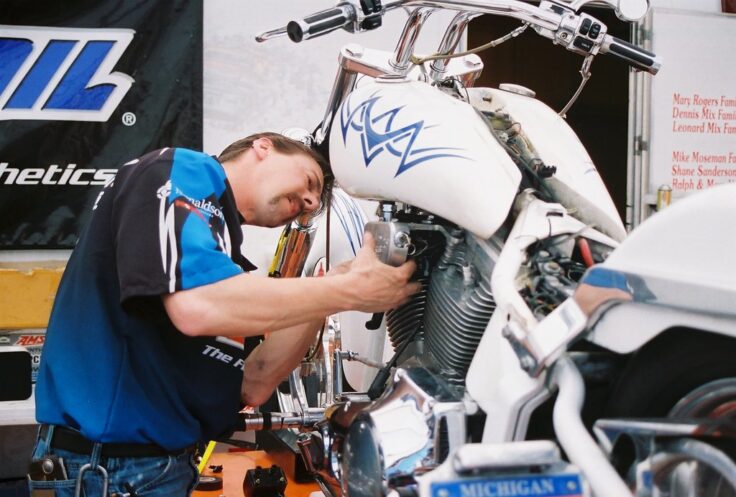
Check your bike before you head back to the road. You must assess the:
- Engine case
- Kickstand
- Brake pedal
- Brake lever
- Footpegs
- Forks
Ensure that everything is intact and working before getting back on your motorbike. It is important to check the overall condition and functionality of your bike as your safety, after an accident, should be a priority. First, look over for any damage to the engine case, after that, progressively check the kickstand, foot pegs, brake level, brake pedal, handles, steering, and so on. If anything has come loose or your lighting doesn’t work, there should be some cause for concern. If there is damage to the engine case, it is advisable to call for a tow.
If your speed was slow, chances are that your motorbike would be in a good shape to get back on the road. If you were speeding, there’s a high chance that your motorbike will have been damaged as you crashed. In that case, contact your insurance provider if you’ve bought an insurance plan for your motorbike. If you haven’t, call your mechanic to provide you with urgent assistance. If you don’t have one, you can get a quote from local body shops here.
6. Inform Someone You Know
Lastly, get in touch with family or a close friend. Even though it seems like a minor accident and you might not feel good bothering your loved ones about it, it’s essential to bring the incident to their knowledge before you get back to safety. They will appreciate you reaching out and give you some much needed advice or comfort in a moment where you might need someone to talk to.
The adrenaline rush and disorientation caused by the accident may surface later and overwhelm you. So it’s important to have someone keep a check on you until you’ve safely reached your destination and give you a thorough check over before getting back to reality.

